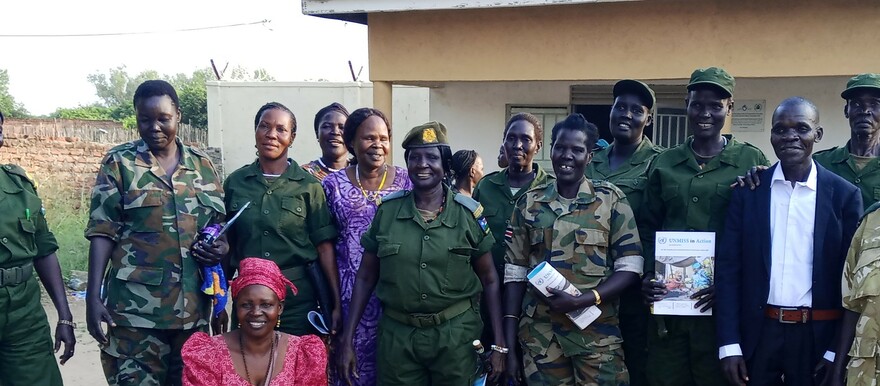In South Sudan’s Eastern Equatoria State, numerous women, including ex-combatants and those serving in the armed forces, are expressing their concerns about gender-based discrimination and a lack of opportunities for promotion within their units.
These sentiments were shared during a one-day subnational seminar organized by the United Nations mission in South Sudan’s gender affairs unit, in collaboration with the state Disarmament, Demobilization, and Reintegration Commission (DDRC) in Eastern Equatoria State.
The event aimed to address issues related to gender-responsive community violence reduction and drew participation from over 30 women serving in organized forces, including the South Sudan People’s Defense Forces (SSPDF), last Wednesday.
The primary objective of the seminar was to identify and understand the challenges faced by ex-combatants and women in the armed forces and explore potential solutions. Additionally, the event sought to enhance awareness of the importance of conducting profiles for women belonging to these groups. Women from various organized forces, including the SSPDF, expressed a range of emotions during the seminar.
Kulang Gabriel, a policewoman, highlighted the rarity of women being promoted based on their gender in Eastern Equatoria State. She expressed deep concern and suggested that if such discriminatory practices persist, women should undergo separate training.
“In our police department, when it comes to promotions, it’s disheartening to see that the majority of promotions favour men. Sometimes, there’s only one woman or none at all on the promotion list. This is highly unjust considering that we all undergo similar training and face challenges together. However, when it comes to promotions, it seems to disproportionately benefit men. Moreover, even in office assignments, men are preferred. Despite a woman’s education, they might be relegated to tasks like making tea or being assigned cleaning duties,” shared Kulang.
Rose Peter, another woman in uniform, alleged that her superiors exploit sex as a means to promote certain women to senior ranks in the army.
“There are people who receive promotions in the army while they are still at home. And when these people are deployed in the field, they face challenges because of lack of experience. They dump their ranks at home. In contrast, for those of us who work hard and do not receive promotions, you may face a salary pay-cut for missing work,” she said.
Betty Joseph, a widow whose husband died on the front lines, accused the SSPDF of neglecting women who have lost their husbands in various locations.
“Soldiers, especially in Bilpam, show disregard for the wives of deceased soldiers. If your husband dies in Malakal, they insist that you go to Malakal to collect your late husband’s salary, even though they are enjoying those funds in Juba. Similarly, if the incident occurs in Aweil, they redirect you there, regardless of the circumstances. They offer no assistance to the widows, even if the amount is meagre and could contribute to the education of orphaned children. Only those fortunate enough to have connections in Bilpam receive any support,” she expressed.
Meanwhile, Francis Ojok Laboke, the Acting Chairperson for the Demobilization, Disarmament, and Reintegration Commission (DDRC) in Eastern Equatoria State, acknowledged the challenges faced by female ex-combatants and women associated with armed groups. He emphasizes the need for increased awareness at all levels of organized forces.
Ojok further urged UNMISS to implement a community violence reduction approach in South Sudan as a means to decrease conflict.
“I would appreciate it if UNMISS could take the lead in making community violence reduction effective in South Sudan. This initiative would allow us to provide support to women in the armed forces and other armed groups. The one-day seminar provided valuable insights for making informed decisions in effectively implementing community violence reduction,” expressed the official.




